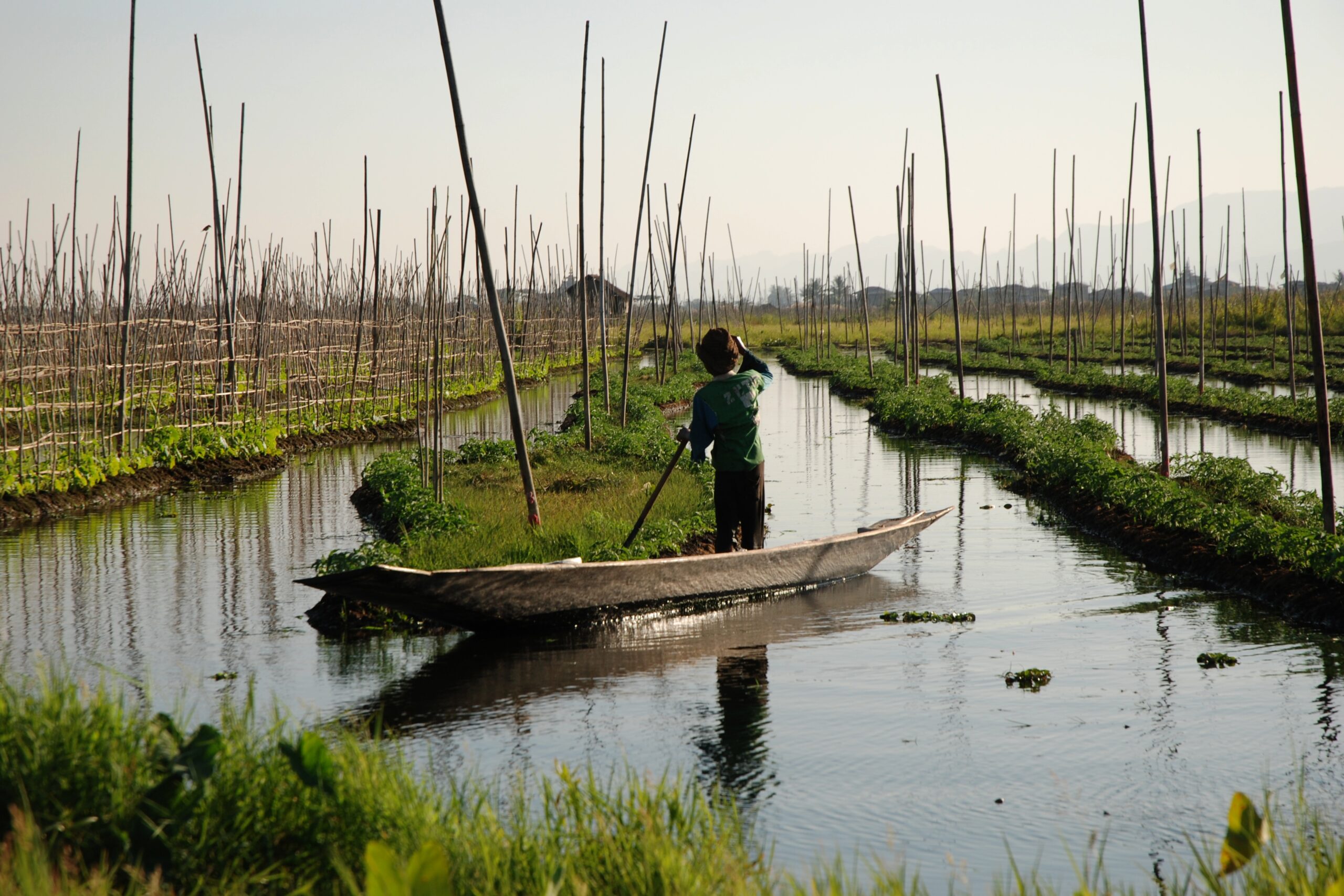🌾Protecting Harvests Part 5 – Floating Gardens ⛵🌾
So far, all of the previous solutions in the “Protecting Harvests” category dealt with adaptation to water scarcity. But what if too little water is not the issue but rather too much water? In regions where intense flooding regularly wipe out entire harvests, adaptation will become inevitable with increasing climate change impacts. There, floating gardens, like practised in Bangladesh and Myanmar, become a viable option.

In Bangladesh, about ¼ of the country experiences strong floods each year. This prohibits regular farming. To counteract this, farmers have started to build floating gardens from naturally buoyant water hyacinths. By layering the plants to a thickness of approx. one meter, they create floating garden beds. The hyacinths are stamped on to densify and start the decomposition process which releases nutrients for crop growth.

On these garden beds, a variety of crops can be grown. This results in food security in times where flooding formerly prohibited agriculture. The floating gardens can even be used for multiple years if maintained correctly. Otherwise, farmers spread the organic material across their fields during dry season so further decomposition nurishes the soil.

With most agricultural areas in lowland plains, sealevel rise threatens crop production all around the world. To feed a further growing population, we will probably see the development of some form of floating gardens. One already existing example are “Jellyfish Gardens” where water-desalinization is coupled to aquaponic farming (More info here: https://www.archdaily.com/569709/jellyfish-barge-provides-sustainable-source-of-food-and-water).
Sources
Floating gardens as a way to keep farming despite climate change. (o.D.). ScienceDaily. https://www.sciencedaily.com/releases/2021/03/210331085648.htm
Pyka, L. M., Al-Maruf, A. A., Braun, B., Shamsuzzoha, M., & Jenkins, J. C. (2020). Floating gardening in coastal Bangladesh: Evidence of sustainable farming for food security under climate change. Journal of Agriculture, Food and Environment, 01(04), 161–168. https://doi.org/10.47440/jafe.2020.1424

Comments are closed